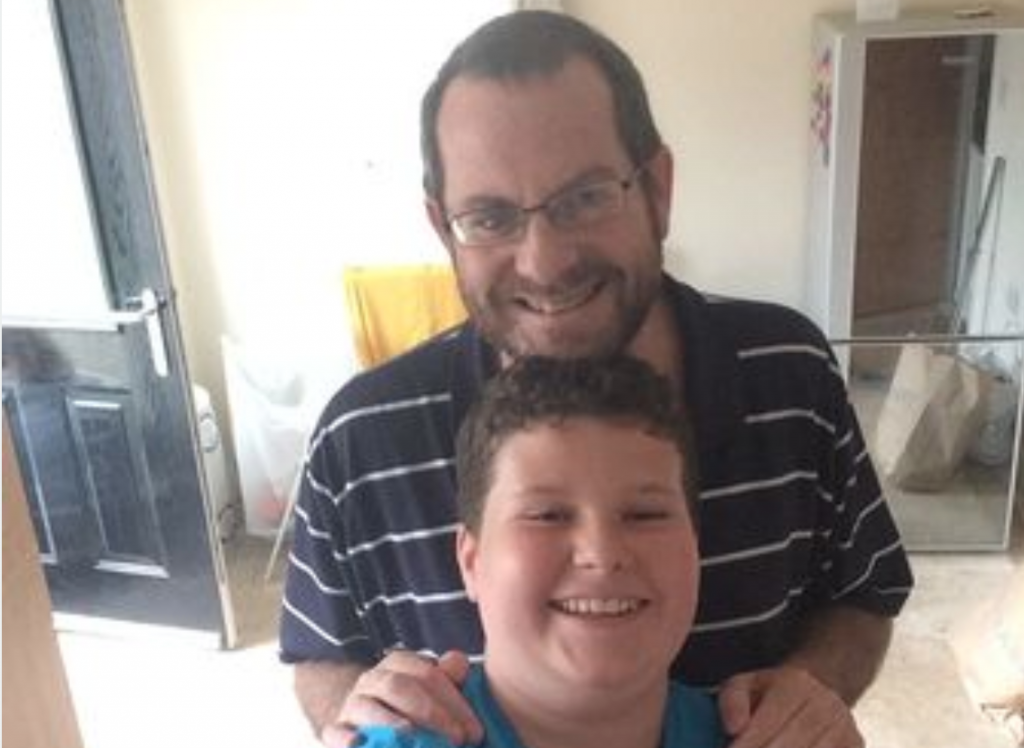A Father's Heartbreaking Diagnosis
- Loving father Stuart Simpson, 56, went to the doctor with heartburn symptoms. Sent home with ‘indigestion,’ he was later diagnosed with bowel cancer.
- Bowel cancer commonly spreads to the liver, which was unfortunately the case for Simpson.
- Many symptoms of bowel cancer are similar to those of irritable bowel syndrome, so make sure to consult with your doctor if symptoms persist, and don’t be afraid to speak up if you are not satisfied with what your care team is telling you.
The “kind, caring, and loving” father from Nottingham, England as described by his ex-partner, Joanne Nunns to YorkshireLive, needless to say, was heartbroken.
Read MoreTragically, Simpson died just two months after his initial trip to the hospital. After his actual diagnosis, when Nunn picked up from the hospital to take him home, he didn’t even make it past a few days because of how advanced the cancer was.
Simpsonwho is remembered as an avid reader and nature-loverwas robbed of the chance to even try to start treatment.

“We still haven’t even got the biopsy results. He would’ve probably gone on to chemotherapy if he’d been strong enough but we didn’t even get time for that,” Nunn said. “We thought we had longer with him, but obviously not.”
Even though the extended family is still in shock, they take comfort in knowing that Stuart “is at peace and no longer in pain or suffering.”
Facing a Cancer Diagnosis as a Single Parent
Understanding Bowel Cancer
Bowel cancer is a general term for cancer that begins in the large bowel, says the National Health Service. Depending on where the cancer starts, bowel cancer is sometimes called colon or rectal cancer, or colorectal cancer.
In the United Kingdom, bowel cancer is one of the most common types of cancer diagnosed. It typically presents in people over the age of 60, but there have been many younger people getting it in recent years. In the U.S., colorectal cancer is the third most commonly diagnosed cancer in both men and women, excluding skin cancers.
This type of cancer most often spreads to the liver, like in Stuart’s case, but can also spread to the lungs, lymph nodes, or abdominal cavity lining.
Dr. Paul Oberstein, director of the Gastrointestinal Medical Oncology Program at NYU Langone's Perlmutter Cancer Center, previously told SurvivorNet a few common symptoms of the disease to look out for:
- Change in bowel movements sudden changes to the size, consistency or caliber of stool
- Change in stool color bright red or black stool is a sign that an individual should seek medical attention
- Pain in the abdomen unusual discomfort or bloating of the stomach. In the case of women, pain isn't related to the menstrual cycle.
- Sudden and unexplained weight loss rapid drop in weight that isn't the result of diet or exercise
- Anemia Individuals who feel a general sense of malaise or faintness, or are constantly tired or weak much more than usual, may want to consult a doctor.
Many symptoms of bowel cancer are similar to those of irritable bowel syndrome, so make sure to consult with your doctor.
Learn more about SurvivorNet's rigorous medical review process.


